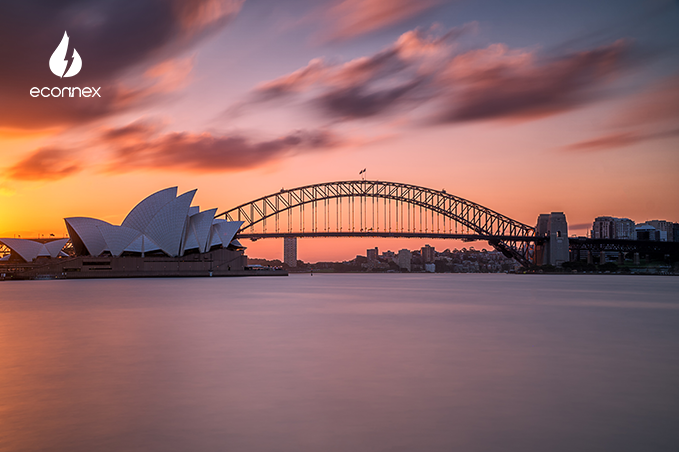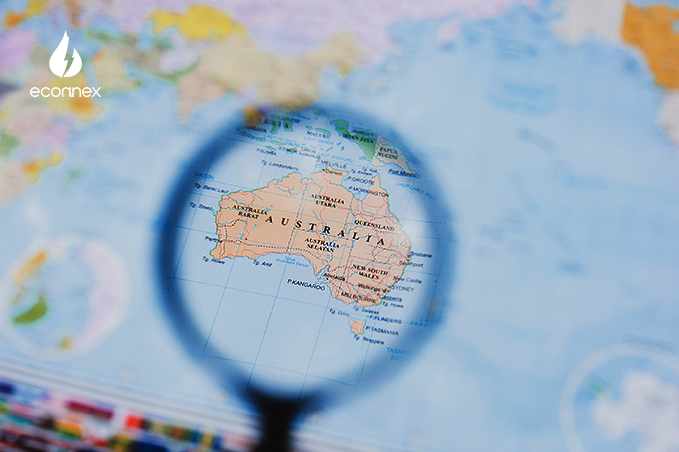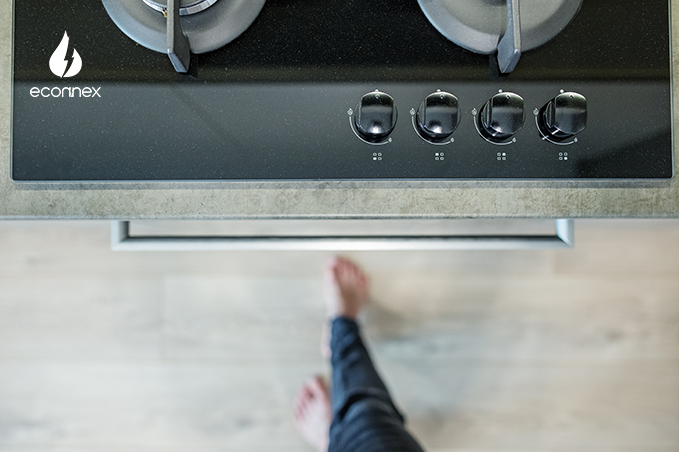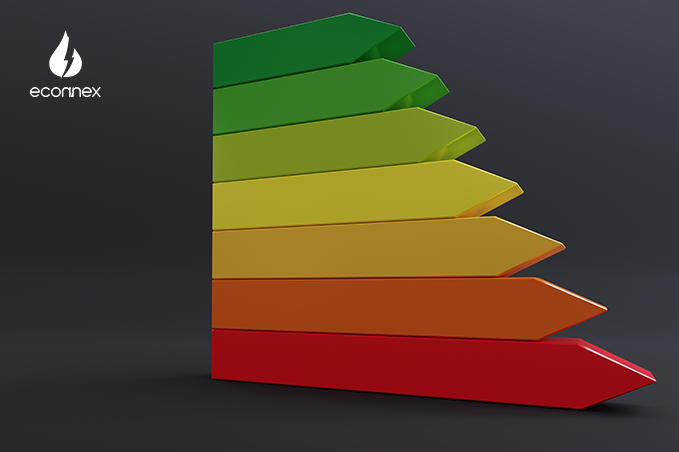In New South Wales, there are several different retailers and plans that you can compare to identify the best electricity provider in the state for your household’s unique needs.
Find the right deal for your home – here’s everything you need to know about the energy market to help compare the most reliable, rewarding or cheapest electricity providers in NSW.
Electricity Providers in NSW
When searching for the cheapest or best electricity providers in NSW, assessing the various factors influencing costs is essential. While rates can vary based on individual location, consumption, and plan preferences, some of the most budget-friendly options from our esteemed panel of retailers are provided below for your information.
The Electricity providers in NSW on the Econnex panel offer competitive rates and a variety of plans to suit different needs. Conducting a thorough comparison and considering any available discounts or promotions will help you identify the most affordable or best electricity provider from the available options that align with your requirements in New South Wales.
Check - Best Electricity Companies in Australia
Electricity Contracts in NSW
There are two types of electricity contracts currently available in NSW:
- Standard Contracts – If you live in NSW and haven’t switched providers in years, you are most likely under these older and more expensive contracts. These have basic regulated conditions set by the government, which can provide advice on payment methods for households experiencing hardship. Energy companies are required to offer a standing offer contract in addition to their market offers as a form of consumer safety net.
- Market Contracts – These are contracts set by energy retailers with varying contract lengths, discounts, and benefit periods that provide the opportunity to cut costs so long as the customer complies with the conditions.
If you need help, you can contact your energy provider to check your contract type. Switching from a standard offer to a market offer may be recommended to save money on your bills and find the cheapest electricity providers, as long as you meet any eligibility requirements or conditions for discounts.
Electricity Costs in NSW
Electricity offers from different retailers come with all sorts of prices and charges. The best electricity providers in NSW for one household may not be suitable for another. Reading product terms and conditions is recommended to better acquaint yourself with the applicable charges and fees. In general, electricity customers in NSW can expect two main components to their electricity bills - supply and usage charges.
- Daily Supply Charge - This is the charge for being connected to the electricity grid, which varies from 80 cents up to $1.20/day depending on your chosen plan and remains the same regardless of your energy usage. Some retailers with cheaper supply charges might have slightly higher usage rates or vice versa.
- Usage Rate - These are rates for actual electricity usage, calculated according to different applicable tariffs and peak or off-peak periods of the day (again, depending on your chosen plan). Standard peak usage charges can cost anywhere from 28 to 29 cents per kWh for peak time usage, with some providers charging up to 40 cents.
Electricity Plans in NSW
The electricity retailers offer a wide variety of plans differentiated by various rates, discounts, or sign-up incentives, which can make locating the cheapest electricity providers in NSW a more difficult task. The rates that apply to your electricity plan generally fall into two categories – Variable rates and Fixed rates.
- Variable Rate Plans - These plans have variable rates for usage and supply, wherein retailers can change the electricity usage and supply prices at any time with prior notice according to market conditions. Remember that you can choose to compare and switch electricity plans using Econnex Comparison if you’re dissatisfied with the rates applied to your current plan.
- Fixed Rate Plans - These plans are lock-in supply and usage charges for a set period, usually two years. This protects you against any charge increase, although fixed plans typically contain higher rates compared with other variable plans.
Some niche retailers may apply additional rates to a plan, such as maintenance rates or charity donation options, depending on the nature and intended purpose of that product. For example, an electricity plan catering to pool owners may also fold a maintenance and cleaning fee into regular charges.
Electricity Tariffs in NSW
A tariff is the pricing structure of energy plans with different usage charges based on energy usage. Some tariffs will only be available if a smart meter is installed at your property. In NSW, tariffs fall into three categories:
- Single Rate Tariffs - The same usage charge applies regardless of the time of day. A single-rate tariff costs around 30 to 32 cents per kWh, depending on how much power you use daily. Energy companies in NSW often divide usage costs into ‘block rates’, with the price stepping down as your net energy usage increases. On the first ‘block’, the prices are at the highest. For each following block, the price decreases (although the costs of these blocks typically only have a marginal difference between them). No matter what type of meter you have on your property, you should be able to take advantage of an energy plan with a single-rate tariff if desired.
- Time of Use Tariffs - The usage charges are different, depending on the time of your power usage (only applicable to households with an import/export smart meter). Typically, the rates are broken up into peak, off-peak and shoulder periods, aligning with the demand on the grid.
- Peak - Peak hours are those where the net demand on the grid is the highest. As such, these are the most expensive rates you will likely pay to incentivise you to run high-usage energy appliances during less demand-intensive times. Peak usage charges can cost up to and over 60 cents per kWh.
- Off-peak - Conversely, off-peak refers to times when net demand on the grid is lower and retailers are looking to encourage consumers to use higher-powered appliances. The rates are, therefore, generally the cheapest within your plan. These charges typically can cost as low as 15 cents per kWh.
- Shoulder - Shoulder rate hours bridge the divide between peak and off-peak and are generally priced accordingly (with a rate somewhere between the two). For example, if off-peak hours are 12-4 PM and peak hours are 6-10 PM, a shoulder tariff could apply from 4-6 PM.
- Controlled Load Tariffs - This is also known as a “dedicated circuit” that allows your meter to select high-usage appliances for a cheaper rate. It’s usually applied to high-usage appliances such as a water heating system. Rates are more affordable than normal usage rates, usually between 6 and 8c/kWh. A second controlled load for big appliances like pool pumps can be applied for up to 16 hours per day, but rates will be higher than the first controlled load.
Electricity Discounts in NSW
Several Electricity providers in NSW offer plan options with significant discounts to help reduce energy bills, including off-usage charges for paying on time or by direct debit, receiving bills via email, and for online sign-up. In some cases, usage charges could be discounted by up to 20%! If you want to learn more or find the cheapest electricity providers, consider comparing the available providers on the Econnex panel to locate the most suitable plan for your budget.
Energy Rebates in NSW
In New South Wales, several energy rebates are available to assist residents with their energy bills. These rebates cater to a variety of circumstances, including low-income households, families, seniors, and those with medical needs or life support requirements. Some of the key rebates include:
- Low-Income Household Rebate: This rebate helps eligible concession cardholders pay their electricity bill. Retail customers who receive bills directly from energy retailers like AGL, EnergyAustralia, or Origin can apply, as can on-supply customers who receive bills from strata managers or community/village operators.
- Gas Rebate: Assists eligible concession cardholders with paying their natural gas or residential LPG bills. Both retail and on-supply customers, including those who buy or refill LPG bottled gas, can apply for this rebate.
- Family Energy Rebate: Designed for households with dependent children who receive the Family Tax Benefit from the Commonwealth Department of Human Services. This rebate is available to both retail and on-supply customers.
- Life Support Rebate: Helps people who require or live with someone who requires approved energy-intensive equipment at home. This rebate is accessible to both retail and on-supply customers.
- Medical Energy Rebate: Assists individuals who, due to a medical condition, have an inability to self-regulate body temperature when exposed to extreme environmental temperatures. Eligible concession cardholders can apply, and the rebate is available to both retail and on-supply customers.
- Seniors Energy Rebate: Available to independent retirees holding a valid Commonwealth Seniors Health Card, offering a $200 annual rebate to assist with living costs. This rebate is specifically for independent self-funded retirees; pensioners and veterans may be eligible for the Low-Income Household Rebate instead.
- Energy Accounts Payment Assistance (EAPA) Scheme: Provides short-term assistance to those facing a financial crisis or emergency, helping them pay their electricity or natural gas bill.
These rebates are part of the NSW Government's efforts to support residents in managing their energy costs. Eligible residents can apply for a combination of these rebates, and most households receiving these rebates are also eligible for a one-off National Energy Bill Relief payment of up to $500 for the financial year 2023-24.
Electricity Distribution Networks in NSW
There are three primary distributors in NSW. Electricity retailers have different prices for their plans for every network, as the customers within each district have unique requirements depending on their surrounding climate, population size, and appliances in regular use.
- Ausgrid – servicing inner, northern, and eastern Sydney.
- Endeavour Energy – servicing southern and western Sydney.
- Essential Energy – servicing country and regional NSW.
Check Average Electricity Bill in Australia
Complete List of Electricity Providers in NSW
In New South Wales (NSW), the broad range of electricity providers available offers consumers a variety of choices for their energy needs. Each company offers different plans and pricing options, allowing consumers to compare and choose the one that best suits their preferences and budget. The cheapest electricity provider in NSW may not provide all of the features.
With this electricity providers list, NSW residents can make more well-informed decisions to find the most suitable or best electricity provider from the available retailers for their homes or businesses, ensuring reliable and affordable power supply. Providers include:
- AGL
- ActewAGL
- Alinta Energy
- Amaysim Energy
- Commander
- CovaU
- Diamond Energy
- Dodo Power & Gas
- EnergyAustralia
- Energy Locals
- Enova Energy
- Mojo Power
- Momentum Energy
- Origin
- Powershop
- QEnergy
- Red Energy
- Pooled Energy
- Sanctuary Energy
- Simply Energy
- 1st Energy
7 Prominent Electricity Providers in NSW
Seven prominent electricity providers in NSW stand out on the Econnex panel, offering a diverse range of energy solutions for residents and businesses. NSW residents can confidently choose from this list of prominent electricity providers to ensure a stable and cost-effective power supply.
- Red Energy
- Alinta Energy
- Dodo Power & Gas
- AGL
- ActewAGL
- Energy Australia
- Origin
Red Energy
Red Energy is an electricity retailer owned by Snowy Hydro – the Australian-owned renewable energy generation company behind the Snowy Mountains Hydro-electric Scheme. The range of plans they offer includes:
- Living Energy Saver - A variable rate plan with no contract term for electricity or gas and no exit fees. There are flexible payment options, a solar FiT of 7c/kWh and a $500 Power on Promise when you move.
- Qantas Red Saver - This deal offers Qantas Frequent Flyer Points for sign-up and bill payment. Customers will receive 2 points for every $1 spent on energy when they pay on time.
Alinta Energy
Alinta Energy, owned by Hong Kong’s Chow Tai Fook Enterprises, claims to be the only ‘true’ national electricity and natural gas company. They keep things simple with a single variable market offer in each state they cater to. Their flagship product is the ‘BetterDeal Plan’, which comes with a $200 bonus credit, if eligible, and no lock-in contract or exit fees.
- Alinta HomeDeal Energy Plan: Available in New South Wales, Victoria, Queensland, and South Australia, this plan offers simple, competitive rates for both electricity and gas. It includes flexible billing and payment options, no lock-in contract, $0 exit fees, and access to Alinta Rewards Shop.
- Alinta Sports Pack Energy Plan: This plan is for sports enthusiasts in New South Wales, Victoria, Queensland, South Australia, and Western Australia. It includes 12 months of Kayo Basic (valued up to $300), flexible billing and payment options, no lock-in contract, $0 exit fees, and access to the Alinta Rewards Shop.
- Alinta Energy Electricity Rates (NSW): The Priority Plus plan offers a 9% discount off the reference price, while the Home Deal plan offers a 3% discount. The Sports Pack and Standing Offer plans are at the same as the reference price.
- Alinta Energy Gas Rates (NSW): The Priority Plus Gas plan offers competitive rates, followed by the HomeDeal Gas, Sports Pack Gas, and Standing Offer plans, each with varying daily supply charges and usage rates.
Dodo Power & Gas
Dodo not only offers phone and internet services but also does electricity and gas. Dodo offers a single variable rate contract with no fixed term. They boast competitive rates, with plans priced below the default market offer, as well as controlled load and flexible payment options.
- Dodo Electricity Rates (NSW): Offers a 15% discount off the reference price, with a daily supply charge of 79.41c/day and usage rates of 32.30c/kWh. The estimated annual cost is $1,550/year.
- Dodo Gas Rates (NSW): The plan includes a daily supply charge of 60.72c/day and usage rates of 3.10c to 5.22c/MJ. The estimated annual cost is $1,000/year.
AGL
AGL is one of Australia’s oldest companies, originally established as the ‘Australian Gas Light Company’ to bring power to Sydney in 1837. They offer three standard plans for electricity:
- AGL Value Saver: This 12-month plan with no exit fees comes with low variable rates, comparatively speaking, resulting in an annual estimated cost of up to 15% less than the NSW Reference Price. Additionally, you could secure up to $150 in sign-up credit.
- AGL Solar Savers: A variable rate plan with up to 15c/kWh feed-in tariff, helping customers maximise their returns from solar (the rate varies per state). There are no lock-in contracts or exit fees, and (again) up to $150 in sign-up credit.
- AGL Netflix Plan: This is similar to the Value Savers plan but adds a Netflix Standard service for family entertainment.
They have also previously offered discounts on electricity usage charges for customers using direct debit and a reduced discount for those who pay bills on time but not via automatic payments.
ActewAGL
Partly owned by AGL, ActewAGL caters to some areas of NSW, including Queanbeyan, Shoalhaven, and the state's southeast corner, covered by the Essential Energy network. They offer great value energy plans with no lock-in contracts and emphasise their local, award-winning service. There are promotions for heating and cooling upgrades and hot water upgrades, but these are separate from the energy plans.
- ActewAGL Conditional (NSW): Offers guaranteed discounts with an extra 3% for direct debit payments. Available as electricity-only or electricity and gas plans.
- ActewAGL Guarantee (NSW): Provides a guaranteed monthly discount off the standard reference price. Available for both electricity and gas services.
- ActewAGL Standard (NSW): The standard retail contract set by the NSW government, available for electricity and natural gas plans.
- ActewAGL GreenChoice: An optional add-on for a small additional cost, allowing customers to support renewable energy.
Energy Australia
Compared to some of the other retailers, Energy Australia only has a few electricity plans for each state. They have a standard plan known as a Flexi Plan, which offers up to 15% less than the electricity reference price on a variable rate contract with no term or exit fees. The estimated annual cost is $1,553 (including GST) for an average home using 3,911kWh per year on a flat tariff in the Ausgrid network area. This is specific to NSW residential customers, and conditions apply. Other plans include:
- EnergyAustralia Balance Plan: This plan offers variable rates and a total energy bill discount. It's 100% carbon neutral at no extra cost and includes a $25 credit for moving home online. For gas, it uses a block tariff.
- EnergyAustralia No Frills: This plan provides fixed rates with simple, low rates. It's also 100% carbon neutral at no extra cost and includes a $25 credit for moving home online. For gas, it uses a single-rate tariff.
- EnergyAustralia Total Home: This plan comes with fixed rates and a total energy bill discount. It's 100% carbon neutral at no extra cost and offers a $25 credit for moving home online. For gas, this plan uses a block tariff.
Origin
Origin provides the most comprehensive range of plan options in NSW, including:
- Origin Go Variable: This plan offers the most significant discount on the reference price and allows Everyday Rewards members to collect points. It replaces the previous Origin Max Saver online plan.
- Origin Everyday Rewards Variable: Provides a total discount off usage and supply, with flexible payment and billing options. It's an ongoing contract with a 12-month benefit period for reward members.
- Origin Basic: A basic electricity plan with no lock-in contract, offering energy prices on a single rate tariff. Customers can add Origin Go Zero Electricity for an additional weekly price.
- Origin Value: Available only in South Australia, this plan is designed for concession households and offers no lock-in contracts with flexible payment options.
- Origin Solar Lite Variable: Tailored for customers with a solar PV system, offering affordable rates for solar customers under a 12-month contract.
- Origin Solar Boost: Provides a high solar feed-in tariff for customers with a solar PV system. Eligibility for the highest feed-in tariff is available with Origin Solar Boost Plus for those who purchase a new solar PV system from Origin.
Final Checklist to Secure the Most Suitable Electricity Plan from the Econnex Panel
Always take into consideration the factors mentioned above when looking for the ideal electricity plan from our Econnex panel of retailers for your needs, including:
- Contract Type: Standard Offer or Market Offer
- Usage and Supply charges per kWh
- Variable or Fixed rate usage charges
- Discount percentage when you receive your bill
- Single rate or Time of use tariff
- Controlled load for water heating
By conducting thorough research and using comparison tools, consumers can evaluate various providers based on pricing, plans, renewable energy options, and customer reviews. This comparison allows residents and businesses to find the most suitable electricity provider in NSW that aligns with their needs, budget, and sustainability goals.




